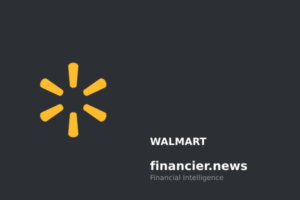$COIN $PYPL #CryptoNews #Stablecoins #YieldFarming #CryptoLegislation #DigitalCurrency #FinancialTechnology #CoinbaseNews #PayPalUpdate #CryptoRegulation #Fintech
How Are Coinbase and PayPal Offering Stablecoin Yields in Spite of a Federal Ban? Discover Their Secret!
Despite new legislation in the United States that explicitly prohibits stablecoin issuers from offering yield programs, Coinbase and PayPal are forging ahead with their plans. This bold move by both financial technology giants is drawing significant attention and scrutiny. The latest coinbase news reveals how these companies are navigating through a legal gray area to provide these lucrative incentives.
Understanding Stablecoins and Yield Programs
Stablecoins are digital currencies designed to maintain a stable value by being pegged to other assets like the US dollar. Yield programs associated with stablecoins have become a popular way for holders to earn returns on their investments through various financial activities, including lending and staking.
The Legal Controversy Surrounding Yield Programs
The U.S. government recently passed legislation aimed at regulating the burgeoning crypto market which included a direct ban on yield programs from stablecoin issuers. This was a response to concerns about the potential risks these programs could pose to financial stability and consumer protection. However, both Coinbase and PayPal seem to have found a loophole that allows them to continue their offerings.
How Coinbase and PayPal Navigate the Legal Landscape
Coinbase and PayPal are leveraging what appears to be a legal gray zone within the legislation. While the specifics of their legal strategies are not publicly disclosed, these firms might be utilizing the intricacies of state laws or the definitions of certain terms within the federal law to maintain their programs. Moreover, these companies could be structuring their services in a way that technically complies with the new rules, despite the overarching intent of the legislation.
The Impact on the Crypto Market and Investors
The persistence of Coinbase and PayPal in offering stablecoin yields could set a precedent for other companies in the crypto space. This scenario not only highlights the innovative approaches companies might take to navigate restrictive regulations but also underscores the ongoing debate between technological advancement and regulatory frameworks. For investors, the continued availability of yield programs provides opportunities for gains, although it also comes with increased scrutiny and potential legal ambiguities.
What This Means for the Future of Crypto Regulations
The actions of Coinbase and PayPal could prompt lawmakers to revisit and potentially tighten the legislation. It also signals to the crypto industry that agility in legal and business strategies will be key to thriving under the evolving regulatory landscape. For more insights and updates on how this situation develops, keep an eye on the evolving digital currency sector at our dedicated crypto news section.
Furthermore, for those looking to expand their portfolio or enter the crypto market, consider exploring various platforms. A valuable resource could be found by checking out offers on Binance, which provides a range of crypto trading options.
In conclusion, the determination of Coinbase and PayPal to continue their stablecoin yield programs amidst federal restrictions illustrates a significant moment in crypto regulation. As the landscape continues to shift, both companies and regulators will need to adapt to ensure both innovation and consumer protection coexist effectively.









Comments are closed.